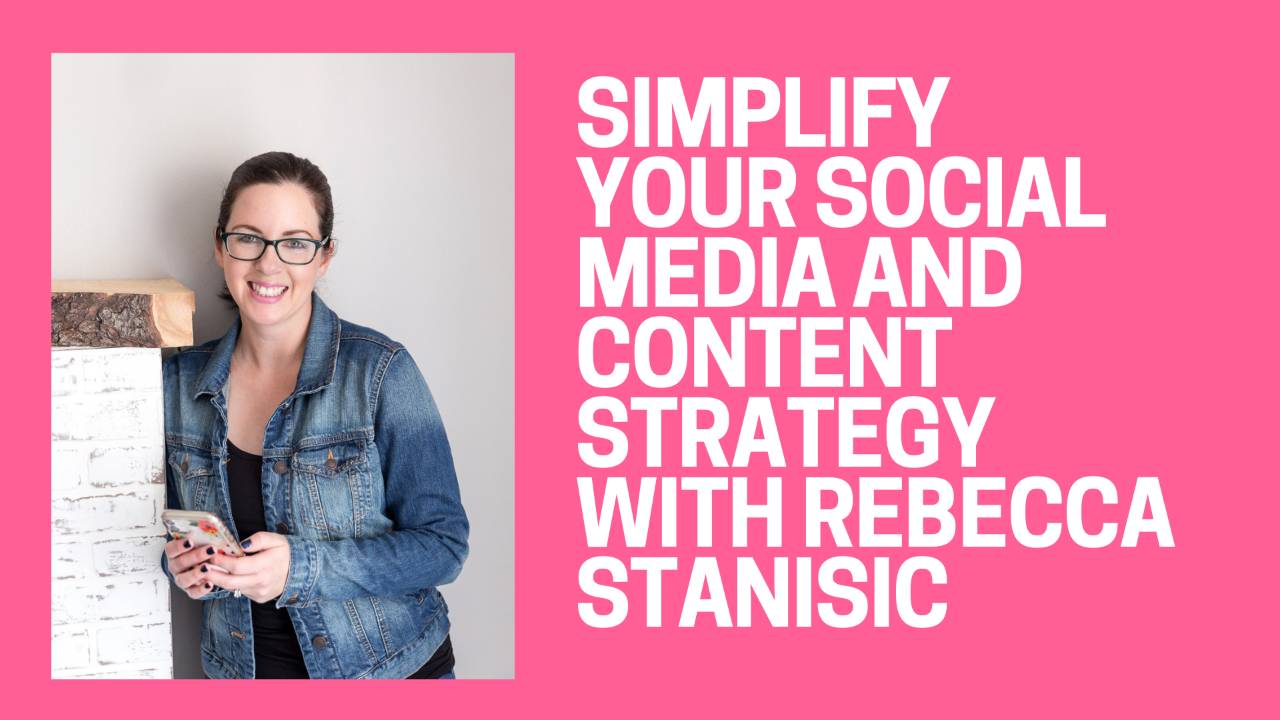Simplify your social media and content strategy with Rebecca Stanisic
Nov 12, 2024
Why Networking, Pitching, and Content Strategy Are Game-Changers for Your Business
If you’ve ever felt overwhelmed by content creation or stuck in a cycle of throwing posts into the void, today’s episode of Content Magic is for you. I had the pleasure of chatting with fellow writer and content strategist, Rebecca Stanisic, about simplifying content, the power of networking, and why pitching your services should be at the top of your to-do list.
Let’s break down some of the biggest takeaways from our conversation so you can start using them in your business today.
Reframing Content Creation
One of the first things Rebecca and I discussed was the constant pressure to show up online—especially on platforms like Instagram, which feel like they require five different types of content just to stay visible.
Rebecca’s advice? Reframe how you think about content.
Instead of trying to keep up with every trend, align your content with your lifestyle and business priorities. If you don’t have time to create a Reel every day, don’t stress about it! Focus on what’s sustainable for you and your audience. When you create from a place of intention, it’s much easier to stay consistent without burnout.
Long-Form Content is Still King
Blogging might not get the same hype as TikTok or Instagram, but it has never gone out of style. Rebecca and I both started blogging years ago, and we agree—long-form content is still one of the most valuable assets you can create for your business.
Why? Because it builds authority, improves SEO, and gives you a content hub that can be repurposed across multiple platforms. If you’ve been avoiding blogging because you think no one reads anymore, think again! Google is still prioritizing fresh, relevant content, which means your website needs to stay updated.
SEO: It’s Not Dead, It’s Just Evolving
Speaking of search engines, SEO has had a resurgence in 2024. Google is constantly changing how it ranks content, but one thing remains true: your website and blog posts should be optimized for search.
Some simple SEO best practices include:
- Using clear headlines and subheadings
- Including relevant keywords naturally
- Adding internal and external links
- Writing in a way that’s engaging and easy to read
Even if social media algorithms change overnight, a well-optimized blog post can continue bringing you leads for years.
Pitching Yourself is a Must (Not an Option)
This is where many small business owners drop the ball. We get so caught up in marketing through social media that we forget about active outreach—aka, pitching!
Rebecca stressed that sending pitches isn’t just for writers or PR pros. Whether you want to speak on a podcast, get featured in an article, or collaborate with another entrepreneur, pitching helps build credibility and opens new opportunities.
And if the idea of pitching makes you nervous, start small:
- DM someone and ask if they’d be open to a collaboration
- Email a podcast host and pitch a topic that aligns with their audience
- Reach out to local media or industry blogs with an article idea
Your next big opportunity won’t always come from social media—it might come from an email you send today.
Build Your Media Page
This is one of my favourite takeaways from our chat. If you don’t already have a media or speaker page on your website, create one!
A media page is essentially a portfolio that showcases where you’ve been featured. It can include:
- Podcasts you’ve guested on
- Articles you’ve written or been quoted in
- Speaking engagements
- Collaborations or features in online publications
Having a media page makes it easier for people to see your expertise at a glance. Plus, when you start pitching yourself, you can link to this page to add credibility.
Connection is Everything
At the heart of all great marketing is human connection.
Networking—whether it’s online or in person—opens doors that you never even knew existed. If you’re feeling stuck in your business, look for ways to collaborate. Show up at industry events, join a mastermind, or simply engage with people in your community.
As Rebecca put it, sometimes the best opportunities come from conversations over coffee, not just from the content you post.
Your Next Steps
✅ Reframe your content creation—make it work for you ✅ Start pitching yourself for collaborations, media, and podcasts ✅ Optimize your website and blog for SEO ✅ Build a media page to showcase your authority ✅ Network and connect with like-minded business owners
Marketing doesn’t have to be overwhelming—small, intentional steps can lead to big opportunities. What’s one takeaway from this post you’re going to apply to your business this week? Let me know in the comments!
CONNECT WITH REBECCA!
Instagram: @bitofmomsense
Website: rebeccastanisic.com
Free webinar: Social Media Mistakes (And How to Fix Them)

